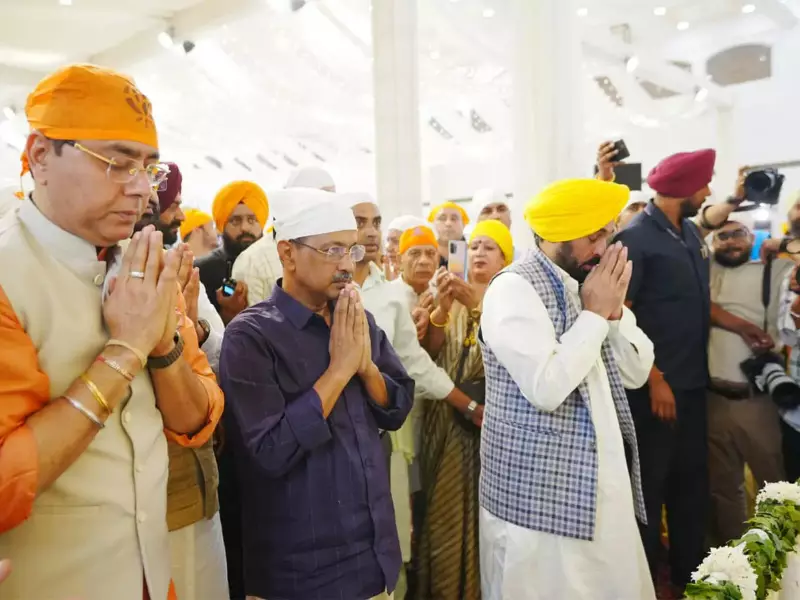
In a significant spiritual gathering that transcended political boundaries, Delhi Chief Minister Arvind Kejriwal and Punjab Chief Minister Bhagwant Mann came together to honor one of Sikhism's most revered figures. The two leaders participated in a soul-stirring Kirtan Darbar at Gurudwara Rakab Ganj Sahib, marking the 350th martyrdom anniversary of Sri Guru Tegh Bahadur Ji.
A Historic Commemoration
The atmosphere at Gurudwara Rakab Ganj Sahib was electric with devotion as thousands gathered to pay tribute to the ninth Sikh Guru. The Kirtan Darbar, organized to commemorate Guru Tegh Bahadur's ultimate sacrifice for religious freedom, saw both chief ministers actively participating in the spiritual proceedings.
Bhagwant Mann, representing Punjab - the heartland of Sikhism, emphasized the continuing relevance of Guru Tegh Bahadur's teachings in contemporary society. "Guru Tegh Bahadur Ji's martyrdom stands as an eternal symbol of standing against tyranny and protecting the right to religious freedom for all," the Punjab CM stated during the event.
Inter-State Unity on Display
The joint participation of chief ministers from two different states and political backgrounds sent a powerful message of unity. Arvind Kejriwal's presence underscored the importance of honoring Sikh heritage beyond Punjab's borders, particularly in Delhi where Guru Tegh Bahadur was martyred.
"This isn't just about remembering history; it's about drawing inspiration from Guru Tegh Bahadur Ji's courage to fight for justice in today's world," Kejriwal remarked, connecting the 17th-century martyr's sacrifice with modern-day values.
Spiritual Atmosphere and Devotional Music
The Kirtan Darbar featured continuous devotional singing that captivated attendees. The melodic hymns and spiritual discourses created an environment of deep reverence, with both political leaders seen immersed in the religious proceedings.
The event served multiple purposes:
- Commemorating the 350th anniversary of Guru Tegh Bahadur's martyrdom
- Promoting inter-community harmony and understanding
- Reinforcing the constitutional values of religious freedom
- Strengthening cultural ties between Delhi and Punjab
Historical Significance
Guru Tegh Bahadur, the ninth Sikh Guru, was executed on the orders of Mughal Emperor Aurangzeb in 1675 for refusing to convert to Islam and for defending the religious rights of Hindus. His martyrdom site in Chandni Chowk, Delhi, now houses Gurdwara Sis Ganj Sahib, while Gurdwara Rakab Ganj Sahib marks the site where his body was cremated.
The 350th martyrdom anniversary represents a milestone in Sikh history, making this year's commemorations particularly significant for the global Sikh community and all Indians who value religious freedom and pluralism.





